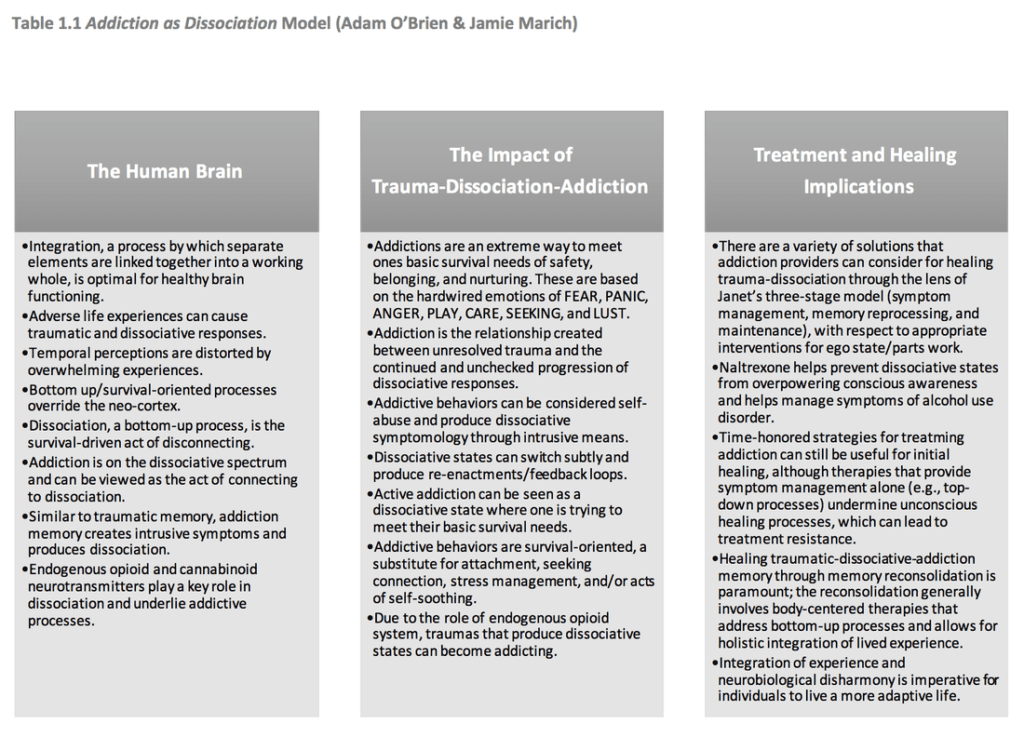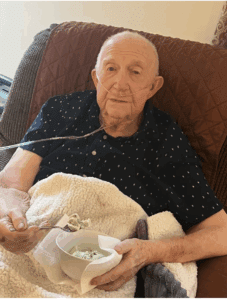Addiction is a dissociative response. Sounds like common sense, right? For many years we’ve operated in our practices fueled by this assumption. As individuals in personal recovery, the link between unhealed trauma/dissociation and addiction has been blatantly obvious. Even when we share our work with people on developing this new model of Addiction as Dissociation, we are met with a great deal of, “Well yeah, obviously.”
Both of us have been working very hard in 2019 to scour the literature and create a model that we are now calling Addiction as Dissociation. Regardless of your adopted stance on addiction (e.g., a disease, a response to trauma) or whether you even like the word (i.e., you may prefer behavioral compulsivity), this model will likely be relevant to your practice. We’ve prepared a table version of the model that you can examine in this blog. You are welcome to share it and we also value your comments on what resonates and what may still need refinement. Our scholarly paper that fully supports the contentions and flow of the model is currently under review and we will keep you posted about the more formal debut of this model to the world.















5 Responses
Keep me posted when research paper is done.
Mantenha-me informado quando o trabalho de pesquisa for concluído
Would definitely want to read this after the review!
woundedhealersinstitute.org if people are looking for more…